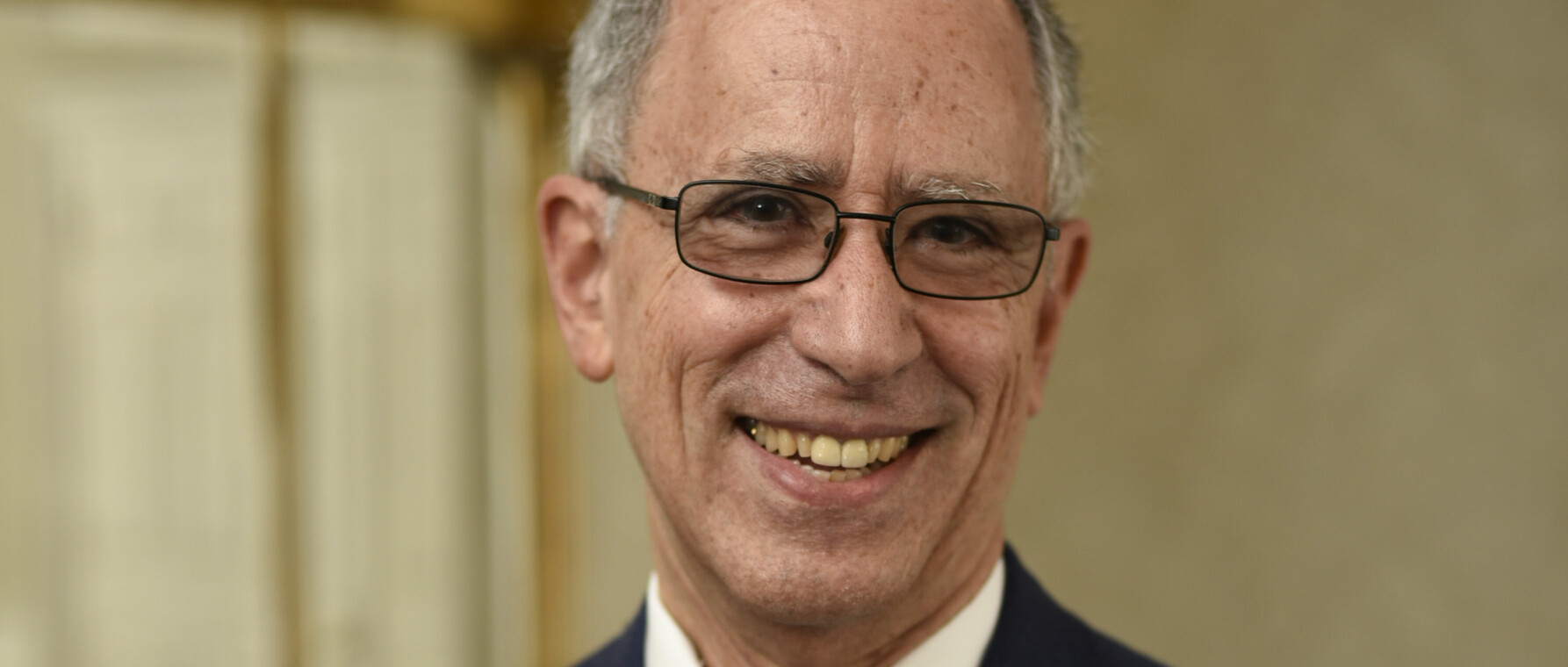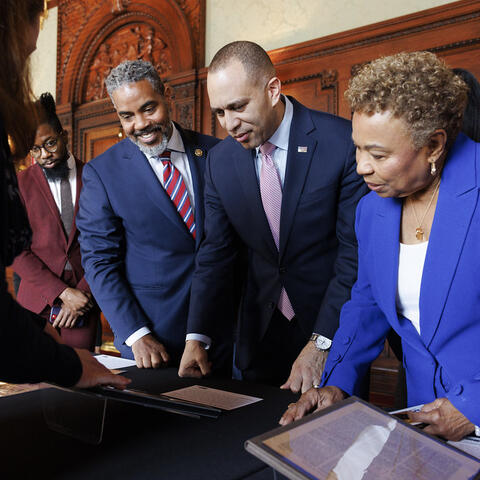Harold Luft: 2018 Centennial Medal Citation

Improving our national health care system—making it more effective, accessible, and financially sustainable—remains one of the most urgent and daunting challenges of our time. This work demands expertise in bridging medicine and economics; the ability to analyze large, complex sets of data; and an abiding interest in the experience of real doctors and real patients. Hal Luft embodies all of these qualities. For decades, he has led major research institutes; trained and mentored countless students, fellows, and faculty; and produced scholarship that informs policy decisions and improves the lives of patients.
Luft earned his bachelor’s and doctoral degrees in Harvard’s Department of Economics, completing his PhD thesis in 1973 on the impact of poverty on health, and health on poverty, in America. He quickly distinguished himself as an interdisciplinary, empirical researcher who takes into account the realities of clinical practice; to this end, he made the choice—unusual for an economist—to accept academic appointments in medical schools rather than economics departments. He completed a postdoctoral fellowship at Harvard Medical School’s Center for Community Health and Medical Care, where he worked with physicians, nurses, political scientists, and lawyers on real-world problems. He went on to join the faculty of the Stanford University School of Medicine and became associate director of the Robert Wood Johnson Clinical Scholars Program. In 1978, he arrived at the institution that would become his professional home for the next thirty years: The University of California, San Francisco, where he was Caldwell B. Esselstyn Professor of Health Policy and Health Economics and director of the Philip R. Lee Institute for Health Policy Studies. Ten years ago, he retired from UCSF to become the director of the Palo Alto Medical Foundation Research Institute, where researchers work directly with doctors to explore clinical data and test ideas for improving health care practice.
Christine Bishop, PhD ’74, Atran Professor of Labor Economics at Brandeis University, was a member of Luft’s Harvard College Class of 1968—in her words, they were both “extremely nerdy” as undergraduates—and his classmate in graduate school. She says that the medical community in the Bay Area has provided an ideal environment for Luft’s work. “He was always very concerned and interested in how physicians make decisions,” she says. “Being embedded within the Palo Alto Medical Foundation gives him access to what physicians are really doing, the problems they’re really facing on the ground.”
Barbara McNeil, Ridley Watts Professor and founding head of the Department of Health Care Policy at Harvard Medical School, notes that Luft’s work often sets a course for future study in emerging areas. “Early on, Hal identifies critical issues in health services research or health policy and writes several key articles on these topics,” McNeil says. “Then others follow him. Basically, he is the ‘first responder’ in many areas.”
One of Luft’s most important contributions was his early work on the economics of health maintenance organizations. In 1987 he published a landmark book, Health Maintenance Organizations: Dimensions of Performance, which assembled extensive evidence on HMOs and provided a research agenda that would shape future inquiry. He also pioneered the study of what is known as the volume-outcome relationship, showing that doctors who perform a particular procedure in greater numbers have better outcomes, such as lower mortality rates, and opening up discussion into why this might be the case. Luft’s latest book, Total Cure: The Antidote to the Health Care Crisis, was published in 2008, cutting to the heart of the national debate about health care and offering a comprehensive vision for health care reform.
Luft’s leadership and service to his field have been exemplary. He was elected to the Institute of Medicine, one of the field’s highest honors. He has been a consultant to governments, an editor of key journals like Health Services Research, and an extraordinary mentor. One of his postdoctoral fellows, Deborah Garnick, now a professor at Brandeis University, describes him as “the embodiment of mentoring.” Upon his retirement in 2008, UCSF created the Harold S. Luft Award for Mentoring, which recognizes faculty mentors who demonstrate the qualities exemplified by Luft. The award’s criteria specify that recipients must “expand mentees’ ways of thinking by fostering an appreciation of different points of view.”
Luft’s own mentor, the late Rashi Fein, held Luft and his career in the highest regard. “US health care and millions upon millions of Americans—patients and prospective patients—surely are the richer for the choice he made,” Fein said. “And Professor Luft is also better off. Hal certainly would have become one more among many great American economists. That, however, doesn’t hold a candle to what he became: the preeminent American health care economist.”
Harold Luft, for your dedication to advancing interdisciplinary, empirical research that improves health care for the benefit of millions of Americans, and for your extraordinary service as a trusted leader, advisor, and mentor, we are proud to award you the 2018 Centennial Medal.
Read about the 2018 Centennial Medalists
Photo by Tony Rinaldo
Get the Latest Updates
Join Our Newsletter
Subscribe to Colloquy Podcast
Simplecast





